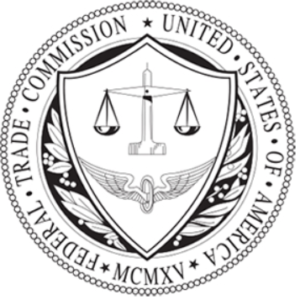
Media Release
January 8, 2022
In FY 2021, the FTC received more than five million complaints and 2.8 million new numbers were added to the DNC Registry
The Federal Trade Commission issued its biennial report to Congress on the National Do Not Call (DNC) Registry. The new report details the number of consumers – now totaling more than 244 million – who have placed their telephone numbers on the Registry over the past two years. It also states the FTC received more than five million Do Not Call complaints in fiscal year (FY) 2021, with people overwhelmingly reporting these violations came via robocalls, as opposed to live telemarketing.
Imposter scam and warranty protection scam calls led list of commonly reported call topics in FY 2021, followed by calls related to reducing debt and medical needs and prescriptions. Since the pandemic began, the FTC has received more than 18,000 COVID-related Do Not Call complaints, according to the report. In response to the consistently high number of complaints from the public about impersonator scams, the FTC recently launched a rulemaking initiative to combat business and government impersonation fraud.
The report notes that the DNC Registry exists to provide consumers with a choice regarding whether or not to receive telemarketing calls. Accordingly, it is important that the FTC continue to work alongside the Federal Communications Commission to ensure that the Registry is effective and accessible for both consumers and telemarketers. As new technology provides new challenges, both agencies actively seek to address and confront them by, among other things, encouraging private industry, other government agencies, academia, and other interested parties to create and develop new strategies to help consumers avoid unwanted telemarketing calls.
The report also includes the number of entities paying fees to access the Registry and the amount of the fees; the impact on the Registry of the five-year re-registration requirement (which was subsequently rescinded), new telecommunications technology, and number portability and abandoned telephone numbers; and the impact of the established business relationship exception on businesses and consumers. The final section includes updates on recent DNC-related enforcement actions, including recent cases against VoIP service providers, Globex Telecom, Inc., and Alcazar Networks, Inc.
Biennial Report Data
The DNC Registry currently has 244.3 million active registrations, an increase of more than 2.8 million from the previous fiscal year. According to the report, during FY 2021, 2,000 businesses and other entities paid nearly $13 million to access the Registry. More than 12,000 entities subscribed to access the Registry, including 9,595 who registered for five or fewer area codes free of charge, and 512 entities (such as charitable organizations) claimed “exempt organization” status and received free access to the Registry.
In FY 2020, 1,952 entities paid Registry access fees totaling nearly $12.5 million. That year, 10,420 entities subscribed to Registry, including those who registered to access five or fewer area codes at no charge, and 556 entities claimed “exempt organization” status and accessed the Registry without paying a fee.
The Commission also publishes an annual Do Not Call Registry Data Book that provides substantial detail on registration numbers and other statistical information about the Registry. Similar information is also available the FTC’s Tableau public page, which is updated regularly and allows users to interact with the data to drill down to state or county data.
The Commission vote approving the report and its submission to Congress was 4-0.
The Federal Trade Commission works to promote competition, stop deceptive and unfair business practices and scams, and educate consumers. Report fraud, scams, or bad business practices at ReportFraud.ftc.gov. Get consumer advice at consumer.ftc.gov. Also, follow the FTC on social media, subscribe to press releases, and read the FTC’s blogs.
